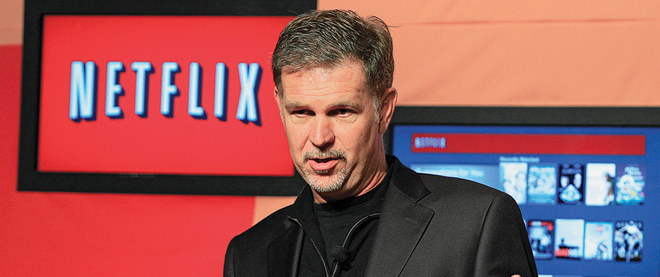The Netflix thriller
Netflix’s recent roller coaster ride has been a particularly wild one
Mike Cassese/Reuters
Share

After a steep plunge, its stock is suddenly hot again. Can it keep luring the subscribers it needs to survive?
Silicon Valley is famous for spawning overnight success stories—Twitter, Google and Facebook—and infamous for making losers out of former winners just as quickly, as anyone involved with MySpace will attest. But Netflix’s recent roller coaster ride has been a particularly wild one.
The popular Internet video streaming company, based in Los Gatos, Calif., enjoyed a nearly nine per cent jump in its stock to just over US$80 this week after it reported that its 20 million subscribers watched nearly two billion hours worth of movies and TV shows on its service during the most recent quarter. That’s roughly 33 hours of video watching per subscriber each month—more than four times the amount watched by users of Google’s online video behemoth YouTube, according to the website paidContent.org.
It might have been a stunning achievement had Netflix not already fallen so far, so fast. Last summer, shares were trading as high as US$300 as hordes of new subscribers signed on and big content deals were signed with movie studios and networks. But then Netflix pulled the plug on itself. Co-founder and CEO Reed Hastings led a clumsy attempt to split Netflix’s legacy DVD mail order business from its fast-growing online one, telling existing customers that they would face a 60 per cent price hike if they still wanted both services. Not surprisingly, many instead reached for the delete key, forcing Hastings to apologize, abandon the plan and warn investors of losses ahead.
The debacle highlighted a potential flaw in Netflix’s business model. Its service is cheap, just $7.99 a month for unlimited access, but the cost of acquiring the necessary rights to provide it is increasingly expensive. The difference must be made up with a huge and growing subscriber base—something that seemed easy to achieve a year ago, but less so now following Netflix’s stumble and the prospect of competing with giants like Amazon, Google and Apple. Keeping your customers happy has always been a key ingredient for business success. But for Netflix, it’s everything.